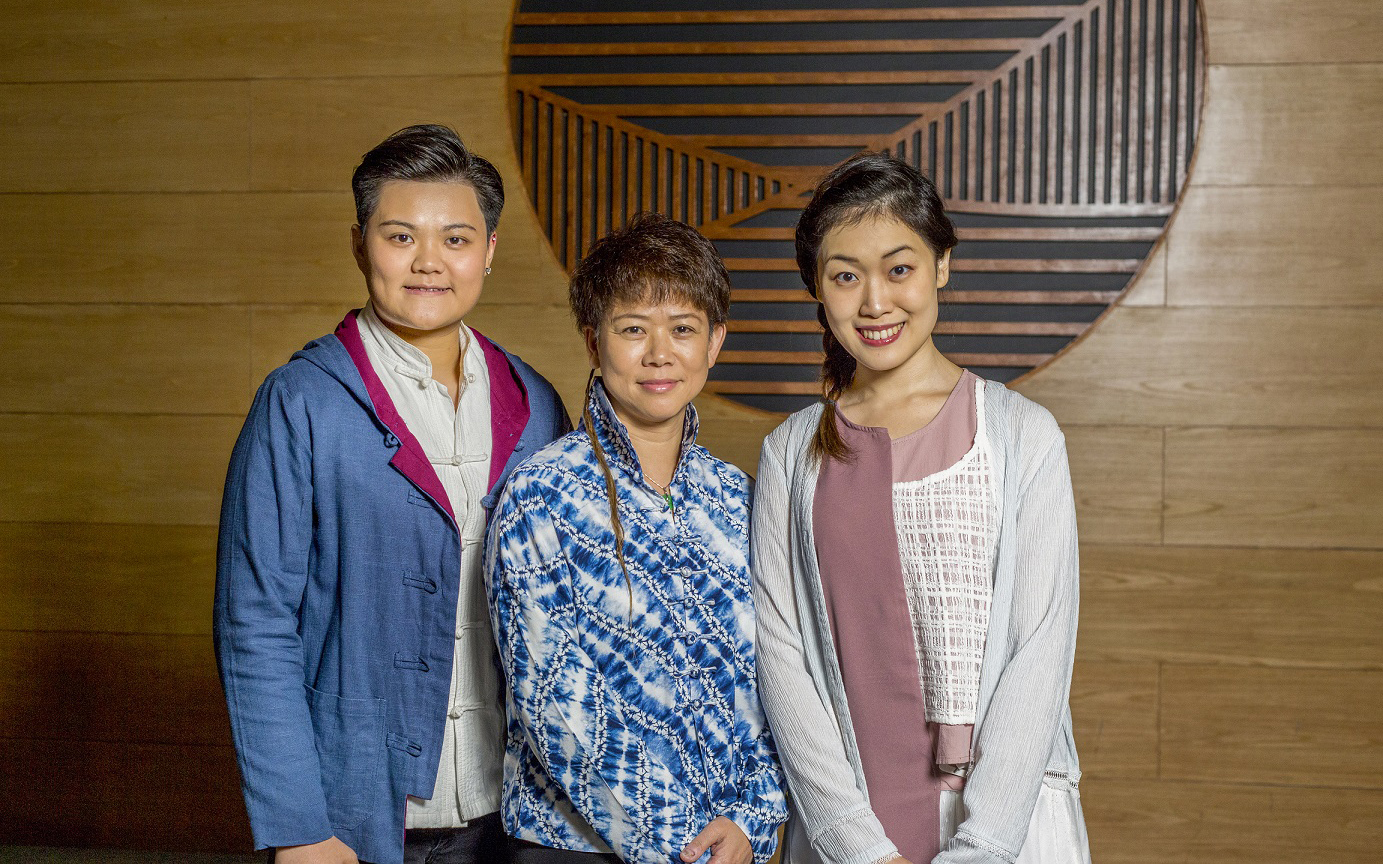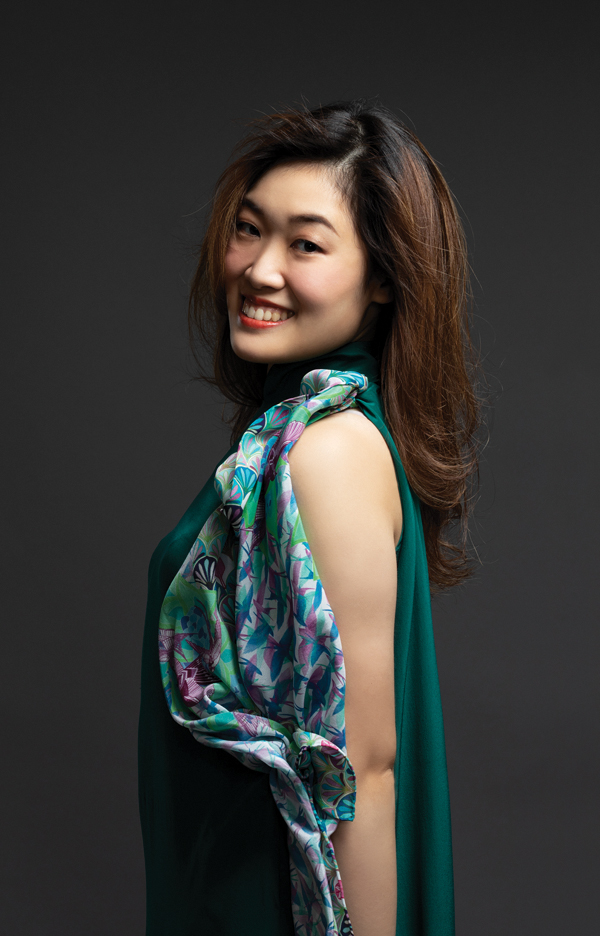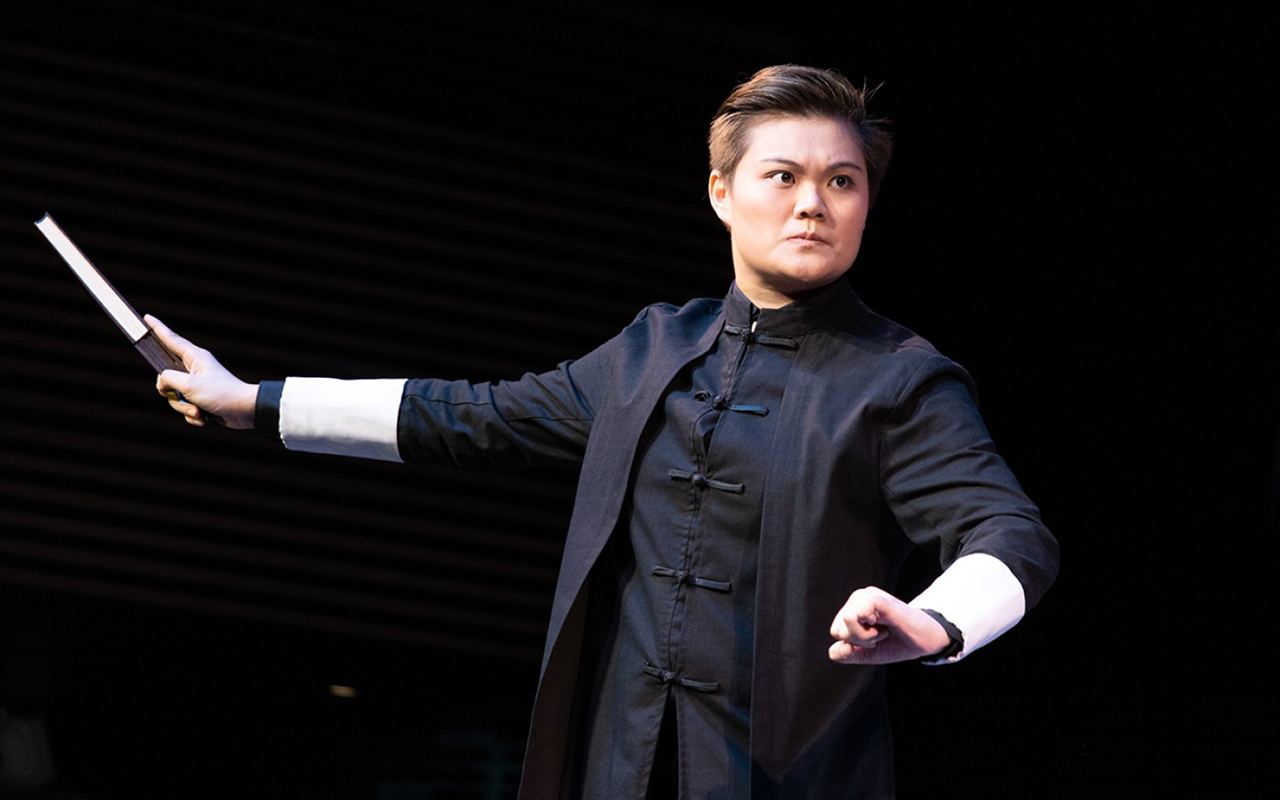
Ming Pao Weekly Magazine-6.12.2019
Passing on Cultural Heritage node edit testing
In 2009, Cantonese opera was officially inscribed onto the UNESCO Representative List of Intangible Cultural Heritage of Humanity, and became Hong Kong’s first item of intangible cultural heritage. Ten years on, the work to nurture and promote the art of Cantonese opera continues, with government investment and new talents helping to ensure its preservation. The Xiqu Centre, which opened in 2019, is hailed as a prestigious venue for this traditional art, and its Tea House Theatre plays a critical role in helping to promote Cantonese opera culture. Producer Naomi Chung says her mission is to give back to the community. “With the Tea House Theatre, we hope to develop new practices in the industry and go the extra mile for Cantonese opera.”
In the 1950s, visiting a tea house and enjoying Cantonese opera were everyday activities for many people. But over time, the development of Cantonese opera has slowed and the tea house culture has faded. In 2014, before the Xiqu Centre opened, Naomi Chung had already looked to theatre models in the West and mainland China for new ideas. “While Hong Kong audiences are used to not being allowed to eat or drink at the theatre, this isn’t the case everywhere in the world. I felt there was room for change, at least in an orderly way!” At the Tea House Theatre, audiences are served traditional tea and dim sum during performances. The special 90-minute Tea House Theatre Experience performance, which includes an introductory selection of nanyin, paizi, Cantonese opera songs, excerpts and instrumental music, also includes narration by an expert moderator, which Chung hopes makes the Cantonese opera experience accessible for new audiences.
A New Generation
The Tea House Rising Stars Troupe, under Artistic Curator and Director Law Ka-ying, comprises young Cantonese opera actors. Although they are regarded as the “new generation”, most have at least 20 years of experience. 26-year-old To Wing-sum, who plays wenwusheng (civil and martial arts) roles in the troupe and is fondly known as “auntie” because of her years of performing experience, fell in love with Cantonese opera at the age of three, enchanted by Cantonese opera star Lee Lung [veteran Hong Kong performer renowned for male lead roles]. Only four when she first appeared on stage, To became a student with Lee Lung at the age of seven and has performed professionally under his mentorship ever since. “Whereas other Hong Kong kids have extracurricular classes, I took classes in Cantonese opera,” says To. Although she had her heart set on Cantonese opera, her mother and mentor constantly reminded her of the importance of education and even arranged for her to study abroad. In the end To decided to attend the medical school at The Chinese University of Hong Kong so that she could perform in Hong Kong. “I was busy with schoolwork in the first year and had no time for Cantonese opera at all. It was hard to choose between my studies and my interests.”

Chan Hei-yu, who plays dan (female) roles, faced a similar struggle. Chan was introduced to Cantonese opera by her grandmother who lived in Cheung Chau and often took her to performances in bamboo theatres. Attracted by the glamourous costumes, Chan started learning Cantonese opera from [renowned dan performers] Kwok King and Man Lai-fung. “I love moving about. I started learning Chinese dance at six. Other kids didn’t like the training but I loved it. In fact, I found singing boring when I was young because I couldn’t understand the music and lyrics.” After she graduated from the journalism school at the University of Hong Kong, Chan’s family wanted her to become a civil servant. Later she joined the Rising Stars troupe and became a professional actor.
Space for Development
The resident performers of the Rising Stars Troupe include six actors and ten musicians, all of a similar age. Since the opening of the Xiqu Centre, the troupe have performed over 200 shows and developed a deep understanding and strong morale. According to Naomi Chung, actors in the industry usually only come together as a troupe when they need to perform. But with young, relatively less experienced actors, this practice offers little space for self-reflection. “There are many opportunities for young actors to perform, but tight schedules leave little time to reflect on their performance. Rushing from one show to the next means that performing becomes just another way to earn a living. We hope to give the actors more time and space. With us, they perform the same show for four to five months, which gives them time to improve, to add new elements or to adjust their style.”
Producer Chung encourages the young actors to try new things. “We provide an open platform where everyone can experiment as much as possible. In recent years, there are more newcomers to the industry. But if you want to make a name for yourself, you need a solid foundation and on-going training.” It was Chung who suggested To Wing-sum perform “The Phoenix Pavilion” in the archaic language of the officials (zhongzhouyun or Central Plains Mandarin), even though she needed to work from an incomplete script. “Her initial vocal style and tempo were very different. But over the course of the performance, she adjusted her emotions and found a way to break through.” Chan Hei-yu, meanwhile, urged by the other members of the troupe, learnt the art of stilt walking. Laughing, she said, “I was born tall, almost as tall as a wenwusheng (male lead), and I’d never thought about stilt walking. But here we have time to practice, and everyone encouraged me to try and gain as many skills as possible.”
Working into old ageTo Wing-sum and Chan Hei-yu both started their Cantonese opera careers early and already have a lot of experience. But performing at a tea house is new for them. “Seasoned Cantonese opera audiences applaud when actors complete certain moves. But at the Tea House Theatre, the audience might be made up of tourists or people who are watching for the first time. If they don’t applaud, sometimes we worry that we’re not performing well enough. But because the applause isn’t automatic, it also helps us reflect on our performance. As actors, we need to know what our audience likes.” To Wing-sum has dabbled in acting, script writing, stage supervision, lighting design and other areas. Although she is currently focused on performing, she also tries to broaden her experience, and hopes to create her own work in future.

But creation is just a short-term goal. Long term, both young actors hope to have lifetime careers as Cantonese opera performers. “I want to be like our predecessors who performed till they were 80 or 90. It’s not an easy path but we will work hard.” Naomi Chung added, “It’s not just the skills of our young actors we want to cultivate. We also want to cultivate a new audience for them. The actors won’t stay at the Tea House forever. The day will come when they feel mature enough to move on. When our veteran performers retire, the stage will belong to the younger generation.”
To keep cultural heritage alive, you need sustainable development. Rather than “conserving” it, it is crucial to find a way to pass it on and help the younger generation develop and promote it themselves.


